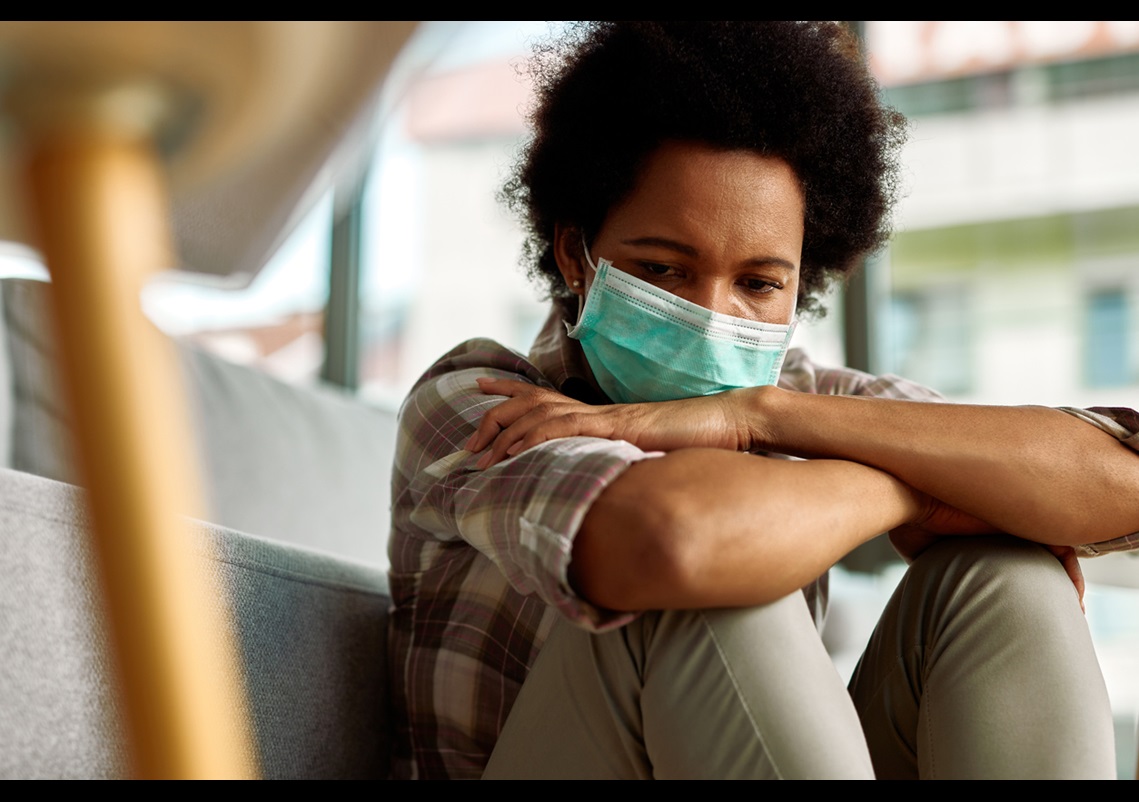Is COVID Stressing Out your Family? Here are Ways to Practice Resilience
Published: Oct 1, 2021
As the physical toll of the COVID-19 pandemic continues to mount, a corresponding wave of mental health and stress-related issues has risen sharply across the Tampa Bay area and the country. The impact on emotions and anxiety levels – fueled by the spread of the Delta variant this summer just as people were returning to their everyday routines – is being felt acutely among children and families.
But formulating internal coping strategies can help kids and adults become more resilient in the face of fear and uncertainty, said Jennifer McCain, PsyD, a veteran pediatric neuropsychologist at Tampa General Hospital.
“We seemed to be moving to the normal we knew before COVID, but then everything changed – in the blink of an eye,” she said. “The escalating pandemic has induced anxiety and panic reactions in the general public, and the sudden need to navigate this ‘new normal’ has compromised the mental health of many people. The ‘new normal’ is constantly evolving, and there is so much we don’t know.”
McCain underscores the depth of the problem with a stunning Kaiser Family Foundation statistic – 41 percent of adults in America reported symptoms of anxiety and depression in January 2021, compared to 11 percent between January and June 2019. Because children are highly impressionable and susceptible to being affected by their parents’ reactions to COVID, the need for adults to manage pandemic-related stress is vital.
“People are getting nervous about possible infections, some people are fighting because of masks – so you just have to focus on what you’re doing to keep your kids safe,” she said. “Kids pick up on all the anxiety you feel. If they’re not given any coping mechanisms or shown how to manage their anxiety, they’re on their own.”
It’s important for parents and caregivers to deal with COVID-19 calmly and confidently with their children, McCain said. Ways to do that include:
• Answering questions and sharing facts in the way a child can understand
• Reassuring children that they are safe but it’s okay to feel upset
• Limiting the family’s exposure to news coverage, including social media because children may misunderstand or misinterpret what they hear or read
• Maintaining regular routines
• Spending time with children with meaningful activities, such as reading, exercise or game-playing
In the meantime, parents and caregivers should be alert to telltale warning signs that a child may be feeling anxious due to COVID, such as:
• Excessive crying or irritation in younger children
• Returning to behaviors they have outgrown (for example, bed wetting)
• Excessive worry or sadness
• Unhealthy eating or sleeping habits
• Irritability and “acting out” behaviors in teens
• Poor school performance or avoiding schoolwork
• Difficulties with attention and concentration
• Avoidance of activities enjoyed in the past
• Unexplained headaches or body pain
• Use of alcohol, tobacco, or other drugs
Parents and caregivers should take time to care for themselves as well, McCain said. That includes:
• Healthy eating
• Regular exercise
• Plenty of sleep
• Making time to unwind
• Talking with people you trust about your concerns
• Spending time outdoors
• Continuing routine preventive health measures, including getting the COVID-19 vaccination
McCain also emphasized the value of “mindfulness” – being present and fully engaged with whatever one is doing at the moment.
“This helps children and young people to regulate their emotions and focus their attention as well as developing their resilience,” she said. “Furthermore, it can open a channel of discussion with adults to discuss thoughts, worries or concerns.”
McCain said that she finds it helpful in her own life to remind herself of a basic reality.
“We can’t control anything else that goes on in this world to a certain extent, so we need to seek out things we are able to control,” she said. “Try not to get stuck in the emotion of a situation, like going to the grocery and seeing people not wearing masks. You can’t control that. You can control ‘you’ – and keep yourself as safe as you want to be. It helps to stop worrying about other people.”
At the same time, McCain acknowledges that this wave of the pandemic is different in nature from the initial one last year – with hospital ICUs filled to capacity with patients who have declined to get vaccinated and now are fighting for and, in many cases, losing their lives.
“I think there’s a lot of anger toward people not getting vaccinated, especially among health care workers, who have been immersed in this for 18 months,” she said. “In the beginning it was different because everyone was on the same playing field. But now people have an opportunity to get vaccinated. And a lot of what’s going on in the hospital is preventable.”
Even amid the widespread stress rippling from COVID, McCain does see one silver lining. “It’s brought to attention the importance of recognizing mental health issues ¬– and de-stigmatizing them somewhat, ” she said. “More people are getting help. More people are on medications. And I think this has opened the door for people to not feel so ashamed about reaching out for help.”
